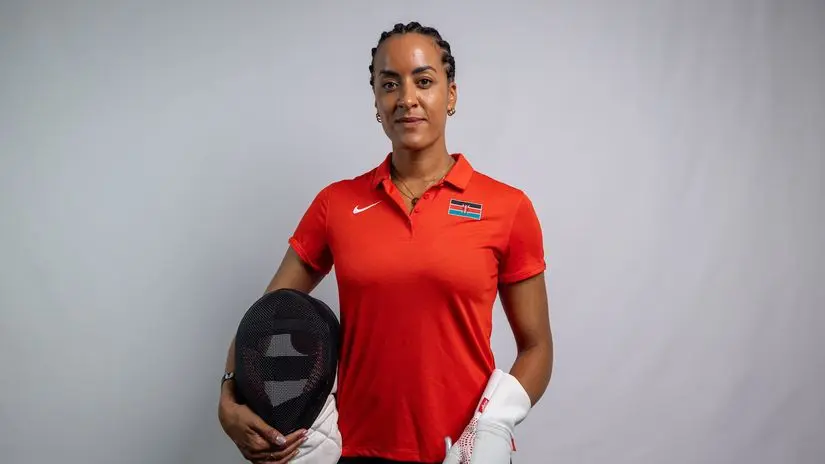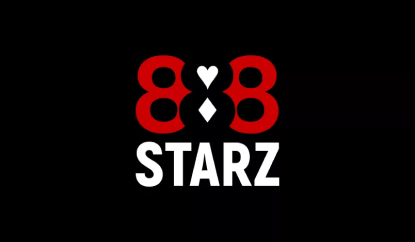Kenyan Athletics Developments are arriving thick and fast, and each headline tells a story of urgency, ambition, and soul searching. From a bold anti-doping push and a controversial selection plan for Tokyo 2025, to a compressed 2026 cross country calendar and a stirring sprint renaissance, Kenya finds itself balancing elite performance with athlete welfare, governance, and the weight of expectation.
The clock compresses ahead of the 2026 world cross country
World Athletics confirmed a January 10, 2026 date for the World Cross Country Championships in Tallahassee, Florida, following a Council meeting in Nanjing. That single decision ripples across training camps from the Rift Valley to Eldoret, since national federations must select their teams by December 2025, right after a busy track year that culminates with the World Athletics Championships in Tokyo from September 13 to 21. Athletics Kenya leaders are already bracing for a squeeze on recovery time and planning windows.
Athletics Kenya Nairobi Branch chairman Barnaba Korir did not mince words about the packed calendar and the need for structure. He framed the task as both logistical and human, a matter of protecting athletes while keeping them sharp for world stages.
“The calendar is fully packed, and from what the World Athletics President announced yesterday, it means that athletes have no time to rest. We shall continue supporting our athletes, and the main thing now is to make sure they get chances to compete internationally so that they can get qualification.”
Korir added that a long-term plan must put a strong team in camp by December to respect the new timeline. The urgency is real, yet so is Kenya’s pedigree. In 2024 in Belgrade, Kenya topped the World Cross Country medal table with 11 medals, ahead of Ethiopia’s 10. That history sets a standard, and it also raises the pressure to get this fine balance right. Careful periodization and depth across squads will be everything.
Relays to Africa and a fresh look at coaching
In a year of firsts and fresh directions, Botswana will host the 2026 World Athletics Relays, a milestone for the continent. World Athletics President Sebastian Coe applauded the nation’s rise as an event host and athletics hub. It is a symbolic shift, a staging that recognizes African capacity to deliver a global showpiece, and it potentially inspires more regional investment in sprint and relay programs. For Kenyan athletics, it is a nearby stage that can energize relay ambitions born in Guangzhou.
The Council also signaled a focus on the people behind performance, announcing a dedicated coaching body to elevate coach representation and align projects with the sport’s bigger decisions. Additionally, the running order for the 4x100m mixed relay at the 2025 World Athletics Relays in Guangzhou has been approved, with the format to be reviewed after the event. Official world records for the 4x100m mixed relay will be recognized from January 1, 2026, and the relay will feature at the World Athletics Ultimate Championship in Budapest in 2026. These moves knit together governance, innovation, and entertainment value, and they also nudge federations to prepare differently.
| CASINO | BONUS | INFO | RATING | |
|---|---|---|---|---|
|
bonus
Deposit KES 147 for up to KES 14,745 bonus + spins!
See 10 Bonuses
|
info
BK 0000683 Industry-leading software providers, over 30 casino games, BCLB license |
|||
|
bonus
New players get 50 free spins and a Ksh 2500 freebet!
See 7 Bonuses
|
info
BK 0000665 PG 0000405 Good combination of online casino and betting platform |
|||
|
bonus
Register for up to 31,400 KSH bonus on deposits!
See 12 Bonuses
|
info
No. ALSI-112310012-F15 Unique selection of slots & games |
|||
|
bonus
Free Coins
See 6 Bonuses
|
info
Multilingual platform focused on crypto with many bonuses ALSI-202507028-FI2 |
Anti-doping rules take center stage ahead of Tokyo 2025
The message from Riadha House is unequivocal. Kenyan athletes who fail to complete at least one no-notice out-of-competition test by May 24 will be ineligible for selection to the 2025 World Athletics Championships. Beyond that first hurdle, athletes must register a minimum of three no-notice out-of-competition tests between October 29, 2024 and August 29, 2025, meeting World Athletics Article 15.5.1-3 requirements for Category A countries. AK President Jack Tuwei stressed that testing is not the only gate, since athletes must also hit qualification times and pass through national trials.
The support structure is being scaled. AK will convene anti-doping education seminars and webinars, while the Anti-Doping Agency of Kenya has linked up with foreign-based athletes, especially in the United States and Japan, for online education and testing. More than 400 athletes have been identified as potential Tokyo candidates, including at least 20 based in the US. Tuwei underlined that whereabouts information must be accurate and up to date, and that ADAMS users should watch their dashboards closely. Athletes without ADAMS have been told to request accounts or submit details through a Google form, and to expect tests any time, in and out of competition.
This drive lands amid sobering headlines. The Athletics Integrity Unit provisionally suspended half marathoner Judy Jelagat Kemboi for the presence and use of Hydrochlorothiazide. Recent weeks have also brought sanctions or suspensions involving Roncer Kipkorir for Testosterone, Morine Michira for Higenamine and Octodrine, and women’s marathon world record holder Ruth Chepng’etich for Hydrochlorothiazide, while a wider list this year has included Sheila Chelangat, Kibiwott Kandie, Ronald Kimeli Kurgat, and Brimin Kipkorir. Adak earlier handed two-year bans to Edward Zakayo and Edinah Jebitok for various violations. The push from AK and Adak is as much about culture as it is about compliance, a bid to rebuild trust at home and abroad.
Prefontaine debate tests transparency and opportunity
Athletics Kenya has set the men’s 10,000m and women’s 5,000m selection races for the Prefontaine Classic in Eugene on July 5, following a pattern from 2024. The logic is performance based. At altitude in Nairobi, qualification standards have been hard to hit, and the federation points to Prefontaine’s fast environment and Kenya’s rich history there as reasons to return. Last year, Beatrice Chebet ran a world record 28:54.14 in the 10,000m at Prefontaine, then took Olympic gold in the 10,000m and 5,000m in Paris. AK sees the meet as a platform that can shape a podium-sweeping team for Tokyo.
Yet discontent is simmering. A section of athletes said the change was not clearly communicated in the calendar, that they were not consulted, and that opportunities seem to tilt toward established names who already have US visas or sponsors. Some questioned why only two events were shifted overseas despite earlier hints that the men’s 5,000m and women’s 10,000m might also be considered. In response, AK’s Barnaba Korir defended the decision, citing last year’s evidence that four of seven qualifying marks were hit at Prefontaine and promising that visa hurdles experienced in 2024 have been addressed. National trials for the men’s 5,000m and women’s 10,000m will be staged at Nairobi’s Ulinzi Sports Complex on August 1 and 2, which places home soil back in the equation.
Sprinting finds a new voice of hope
They say game recognizes game, and Justin Gatlin sees more than speed when he looks at Ferdinand Omanyala. The American great called Omanyala a beacon of inspiration for Kenyan sprinting and for Africa at large, pointing to a mind shift that is already taking root. In Guangzhou, Omanyala anchored the 4x100m team with Boniface Mweresa, Steve Onyango, and Meshack Baabu to a 38.35 national record in round one, then 38.51 in round two, clinching Kenya’s first World Championships relay berth since 1983. That qualification is a statement to young athletes that the path exists, and that belief travels faster than even a baton when the moment is right.
On the road, Omanyala’s form sent a clear signal in Atlanta, where he lowered his African 150m record to 14.70, beating Terrence Jones and Matthew Boling. He called it another lesson on the route to Tokyo, noting that the real task is to refine his racing model over the season. Olympic champion Noah Lyles withdrew injured from that 150m showdown, and Omanyala wished him a quick recovery while reminding everyone that matchups must be settled on the track. Next stops for the Kenyan record holder included Rabat on May 25 and the Kip Keino Classic on May 31, key stages for both form and confidence.
Gatlin’s words reflect a wider cultural shift. He spoke of hope breathing in a country long defined by middle and long distance dominance, and of a new generation, male and female, drawn to the blocks by the proof that it can be done. The relay in Guangzhou offered more than a lane. It offered a mirror for young Kenyans to see themselves in sprint colors, and to chase times and places that once felt out of reach. It is a compelling subplot in a season already loaded with plot twists.
Governance under the microscope with Alexandra Ndolo’s stand
Fencer Alexandra Ndolo, Kenya’s pioneering Olympic épée representative at Paris 2024, has voiced a painful truth about governance and athlete support. In a candid social media post, she described a three-year effort to find accountability mechanisms in Kenyan sport that only met silence. She warned foreign-born athletes to reconsider switching allegiance to Kenya, writing that she could not in good conscience recommend joining Team Kenya at this moment. Her words land with weight because they are rooted in lived experience across funding, logistics, and oversight.
“It seems that no institution in Kenya is or feels responsible for keeping sports federations in check, because in my three-year quest for answers and a checks and balances structure, I could find none.”
Ndolo also reaffirmed that she will keep training and competing for Team Kenya and the African system, with sights on the 2028 Los Angeles Olympics. She wants action from those in power, insisting that the second step in developing fencing in Kenya requires leadership that is invested and transparent. Her on-piste credentials are beyond doubt, with European medals, a 2022 World Championships silver, and two African titles. Off the piste, she has turned to the courts, filing a petition to compel the Kenya Fencing Federation to produce audited accounts from 2021 to 2025 and to reimburse fully documented expenses. The High Court set timelines for responses and will indicate the way forward in November.
Her case details the grind behind the posts. She previously sought help from investigative bodies over monies owed, citing Ksh270,000 for the African Championships in Morocco, and described how often she has financed competition through side work, including reading a children’s book she authored in Germany. Whether one fences or runs, this thread of athletes asking for fairness is woven through the broader tapestry of Kenyan sport. The call is not to criticize for the sake of it, but to spark a culture that matches its talent with world-class administration.
Facilities and identity at stake in Kapsabet
In Nandi County, athletes have taken their fight for heritage and access to court, seeking to halt plans to demolish Kipchoge Keino Stadium to make way for a modern market and housing. Petitioners, including Olympic legend Tecla Chemabwai Sang, argue that public participation in December 2024 showed overwhelming opposition to the change of use and that the stadium is a national sporting monument. The case, certified urgent by the High Court in Eldoret, challenges the county’s plan to relocate sporting activities to the Eliud Kipchoge sports complex land and to reconfigure large sections of the current footprint for commercial and transport needs. The petition frames the proposal as wasteful, environmentally harmful, and a blow to youth employment in a region where athletics is a lifeline.
The county has previously maintained that the redevelopment is designed to stimulate urban growth and jobs, with formal responses to the suit pending. For athletes and fans, this is not only about lanes and stands. It is about memory, identity, and the green space where champions begin. Whatever the verdict, the conversation is a reminder that infrastructure choices are performance choices, and that legacy is built in concrete and grass as much as on podiums.
Records ratified and a long-distance target in Tokyo
World Athletics has ratified Agnes Ngetich’s historic 29:27 in a women-only 10km at Herzogenaurach on April 26, 2025, making her the first woman under 30 minutes in such a race. She went through halfway in 14:37 and won by more than a minute, a run of poise and intent that amplifies Kenya’s road racing dominance. It also ratified Emmanuel Wanyonyi’s 3:54.6 road mile from April 27, 2024, a marker on the rise of the now Olympic 800m champion, who just added a third straight Diamond League 800m title with 1:42.37 in Zurich after a world-leading 1:41.44 in Monaco earlier in the season. The form line into Tokyo could scarcely be bolder.
On the track in Tokyo, Kenya will chase an end to a 24-year drought in the men’s 10,000m, with the last world title secured by Charles Kamathi in 2001. The team was selected at the Prefontaine Classic and features US-based NCAA 10,000m champion Edwin Kurgat, world cross country bronze medallist Benson Kiplangat, and world under-20 cross country champion Ishamail Kipkurui. The race comes on September 14, the second day of competition. Coach Gideon Chirchir has preached teamwork, while Kamathi and Paul Tanui offered insights on mental readiness, finishing speed, and timing the decisive move. Kurgat pointed to a sixth-place 5,000m in Lausanne as a useful gauge and said confidence is growing in camp.
Government incentives and a bid to bring the worlds home
In Nairobi, President William Ruto boosted morale with a tangible show of support, raising daily allowances to 200 dollars for athletes and 300 dollars for officials, and unveiling new medal rewards for Tokyo. Gold will be worth Ksh3 million, silver Ksh2 million, and bronze Ksh1 million. Team Kenya will number 58 athletes for the championships in Tokyo and the public hopes reach far, from Faith Kipyegon and Beatrice Chebet to Emmanuel Wanyonyi and Faith Cherotich. The message from State House is that sacrifice must be recognized with more than applause. It is policy in service of pride and performance.
Ambition is also pointed outward. Athletics Kenya confirmed it will bid to host the World Athletics Championships in 2029 or 2031, with the bidding window open until October 1, 2025. Upgrades at Kasarani and Nyayo are central to the case, and AK President Jack Tuwei expressed optimism that Kenya can finally bring the event to African soil. No African nation has hosted the championships, and a successful bid would be historic, both symbol and catalyst. Delivering the event would require robust assurances on logistics, security, accommodation, and transport, but Kenya’s competitive identity and fan culture build a strong narrative.
What will define Kenya’s next chapter
Across these storylines, one pattern emerges. Kenya’s future is being shaped not by a single race, but by the systems around it. Those systems are under revision, from anti-doping to coaching representation to event scheduling and facility stewardship. The stakes are high, and so are the opportunities. To get there, Kenya must keep translating hard conversations into better structures and translating talent into medals without compromise.
- Raise the bar on compliance and education,
- protect athlete welfare through transparent, timely planning,
- lean into global stages that elevate performance and showcase integrity.
In the weeks ahead, the conversation will focus on Tokyo selection, on how the Prefontaine outcomes blend with national trials in Nairobi, and on the rhythm of training that must now carry into a cross country season starting in early January. Alongside the stopwatch, the court docket in Eldoret and the High Court petition by Ndolo will also tick forward, each case a test of how Kenya listens to its athletes. Each decision will write a line in the story of a nation that has carried distance running for generations and is now asserting itself across the full spectrum, from sprints and relays to governance and hosting.
Hope is on the track, in Atlanta and Guangzhou and Rabat, and it is in team camps in Eldoret where a young 10,000m squad plots a return to the top. It is also at desks where administrators are rethinking calendars, testing protocols, and how to communicate with the people who put on the kit. The best version of Kenyan athletics is one where talent and trust run side by side. That finish line demands the same grit that wins medals, and it is waiting just beyond the next bend.










